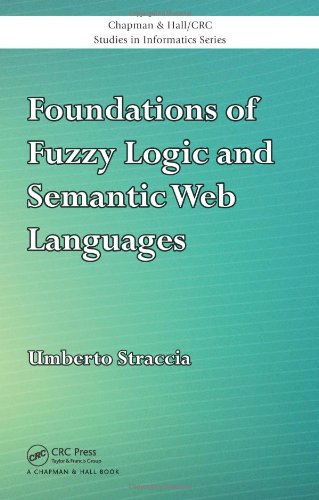

Most ebook files are in PDF format, so you can easily read them using various software such as Foxit Reader or directly on the Google Chrome browser.
Some ebook files are released by publishers in other formats such as .awz, .mobi, .epub, .fb2, etc. You may need to install specific software to read these formats on mobile/PC, such as Calibre.
Please read the tutorial at this link. https://ebooknice.com/page/post?id=faq
We offer FREE conversion to the popular formats you request; however, this may take some time. Therefore, right after payment, please email us, and we will try to provide the service as quickly as possible.
For some exceptional file formats or broken links (if any), please refrain from opening any disputes. Instead, email us first, and we will try to assist within a maximum of 6 hours.
EbookNice Team

Status:
Available4.4
5 reviewsManaging vagueness/fuzziness is starting to play an important role in Semantic Web research, with a large number of research efforts underway. Foundations of Fuzzy Logic and Semantic Web Languages provides a rigorous and succinct account of the mathematical methods and tools used for representing and reasoning with fuzzy information within Semantic Web languages. The book focuses on the three main streams of Semantic Web languages:
Written by a prominent researcher in this area, the book is the first to combine coverage of fuzzy logic and Semantic Web languages. The first part of the book covers all the theoretical and logical aspects of classical (two-valued) Semantic Web languages. The second part explains how to generalize these languages to cope with fuzzy set theory and fuzzy logic.
With an extensive bibliography, this book provides in-depth insight into fuzzy Semantic Web languages for non-fuzzy set theory and fuzzy logic experts. It also helps researchers of non-Semantic Web languages get a better understanding of the theoretical fundamentals of Semantic Web languages.